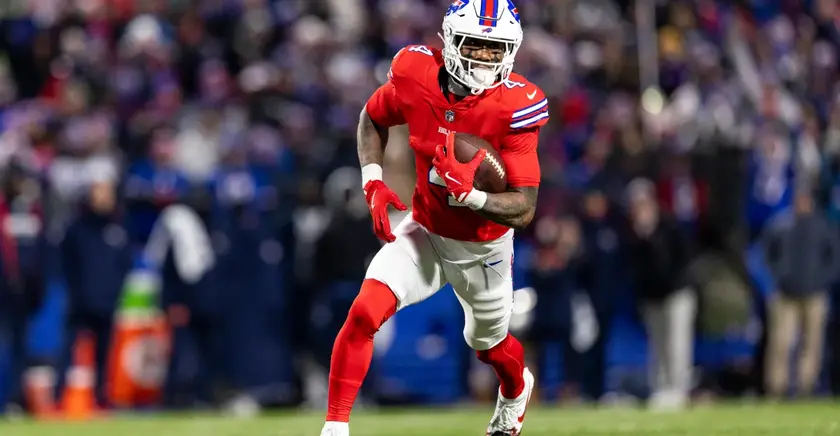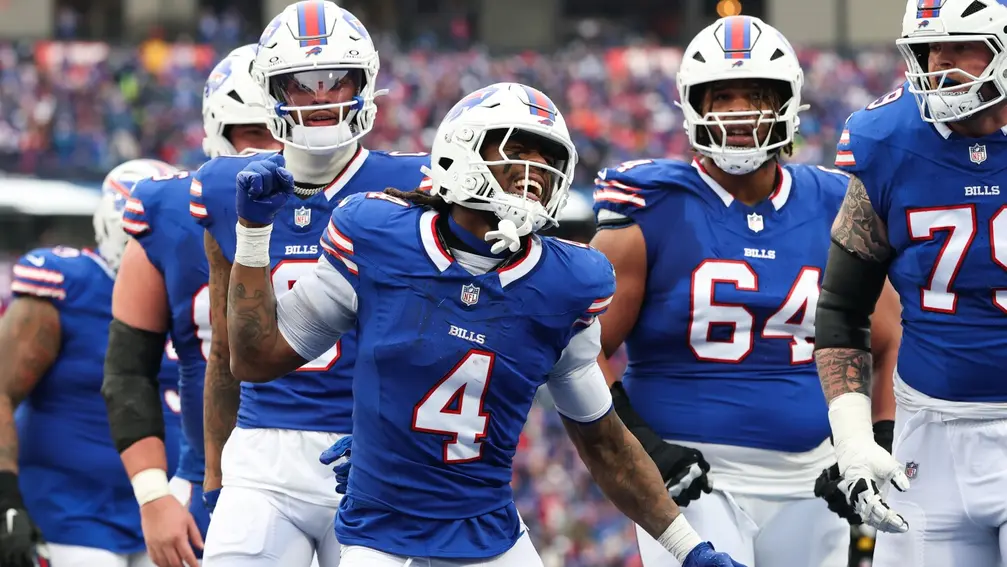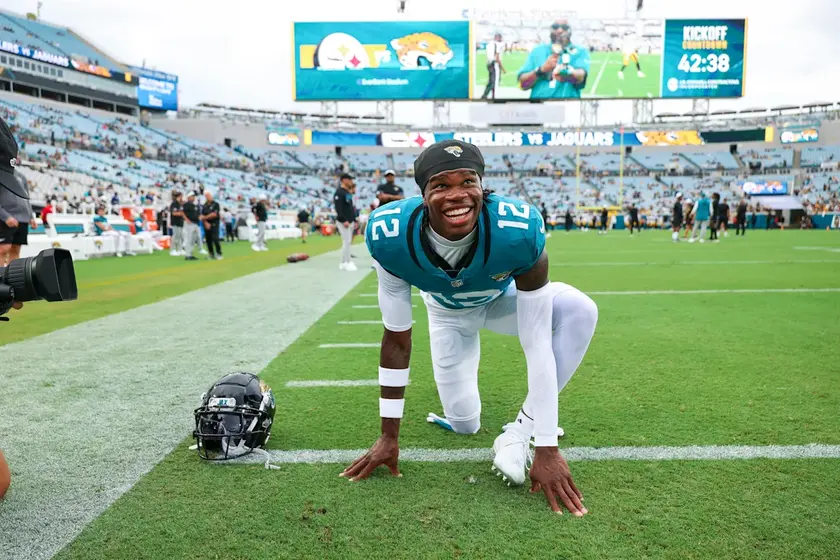T4K3.news
Bills extend Cook four-year deal
Buffalo locks in James Cook with a four-year extension that reshapes the backfield and cap strategy.

Buffalo locks in a key runner while juggling cap space and future options.
Bills Extend James Cook on four-year deal
The Buffalo Bills have signed James Cook to a four-year, $46 million extension that includes $28.82 million guaranteed and a $9 million signing bonus. The deal also features a $7.4 million option in 2026 and an average annual value of about $11.5 million. Buffalo structured the contract to ease near-term cap pressure by converting large portions of salary into signing bonuses, lowering Cook's 2025 cap hit from about $5.7 million to roughly $3.51 million. An early out in 2028 remains possible, with a dead cap hit in the low single digits, giving the team flexibility to adjust the roster in coming years.
The arrangement preserves Cook as a focal point for the offense while maintaining room to maneuver future moves. It reflects Buffalo's strategy of paying for performance while keeping the payroll dynamic enough to add players as the team evolves.
Key Takeaways
"This contract locks in a top playmaker while preserving future options."
Editorial assessment of the structure.
"Beane balanced immediate impact with long-term flexibility."
GM approach to cap management.
"The Bills can weather cap pressures as talent grows."
Implication for cap relative to lineup.
This move fits a broader trend of teams reshaping cap tables by converting base salaries into signing bonuses. It rewards a homegrown talent without sprawling year-to-year commitments and signals a belief that Cook can be a consistent offensive contributor. The structure also shows patience, letting the Bills balance immediate production with long-term flexibility as the market shifts.
But the design carries a cost. If Cook stays productive and healthy, the deal pays off; if not, the Bills could face dead-cap costs and less flexibility to chase other needs. In a league where every dollar matters, this balance between control and cost will be tested by future contracts and roster decisions.
Highlights
- Buffalo is betting on Cook to be the centerpiece of the offense.
- The cap plan gives room to move in a crowded market.
- This is a smart trade off between talent and flexibility.
- Homegrown moves like this define Beane's long-term approach.
Financial risk from cap structure
The deal shifts most of Cook’s pay into signing bonuses and future years, which helps near-term budgeting but creates dead-cap risk if the player underperforms or the team needs to reset the roster sooner than expected.
The Bills face a winter of decisions as they fit depth around a rising core.
Enjoyed this? Let your friends know!
Related News

Bills lock in Cook on four-year extension

Bills extend James Cook to four year deal

James Cook signs new Bills contract

Bills RB James Cook remains optimistic about new contract

Bills lock James Cook to four year extension after hold-in

Jaguars deploy Travis Hunter on offense and defense in preseason debut

James Cook skips Bills' practice over contract talks

Bills secure James Cook extension
